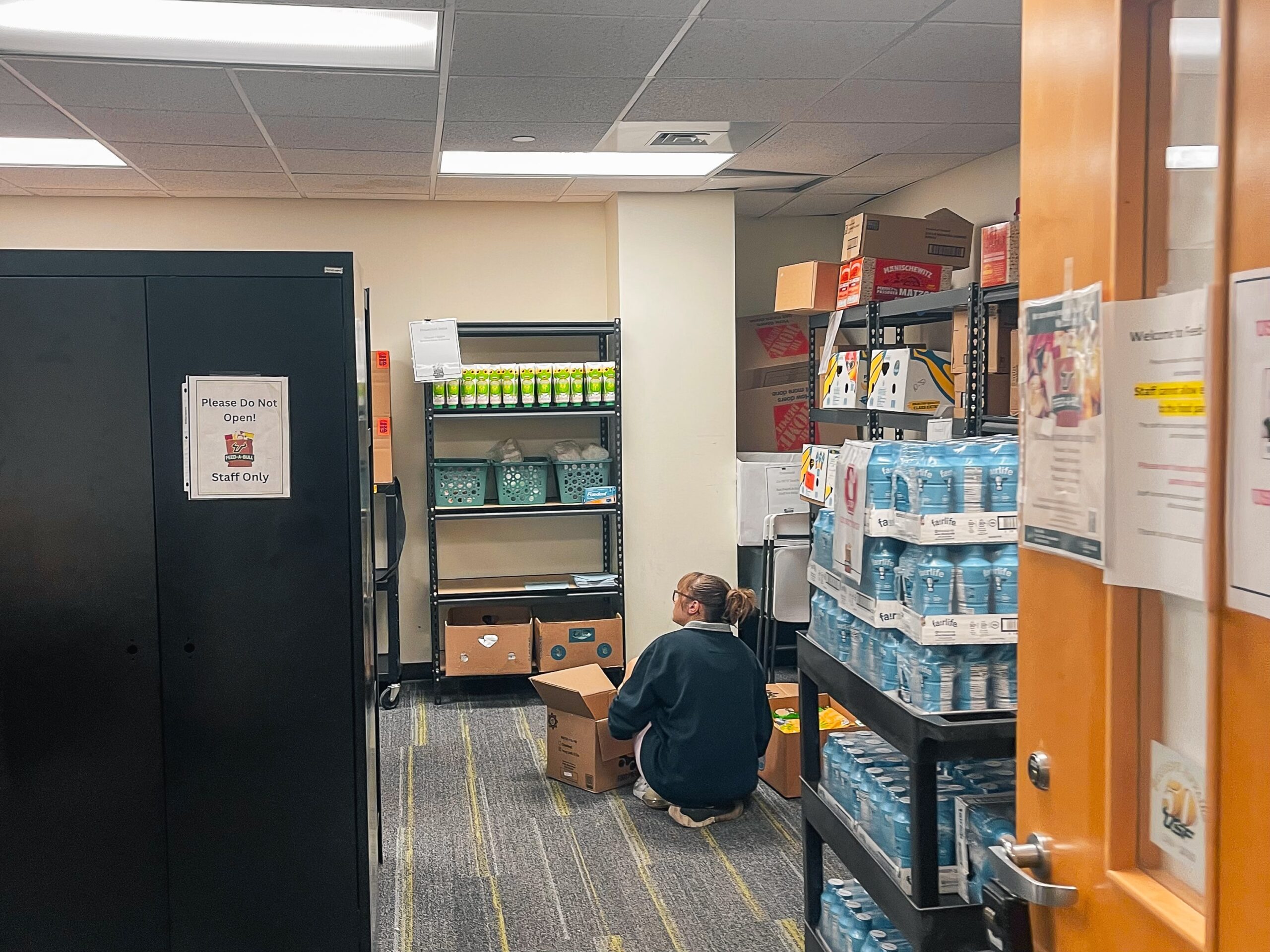USF’s Feed-A-Bull could see reduced food supply amid USDA cuts

USF’s Feed-A-Bull is a donation-based food pantry that helps students in need of food assistance. The pantry is primarily supplied by Feeding Tampa Bay, which helped launch the project in late 2015.
With Feeding Tampa Bay expected to face cuts from the United States Department of Agriculture in the coming fiscal year, USF’s Feed-A-Bull could see a reduction in food stock and variety.
President Donald Trump’s administration recommended some cuts in May that would affect programs like the USDA’s Supplemental Nutrition Assistance Program and Medicaid, according to the Associated Press.
Sign up to the Weekly Roundup, The Oracle’s weekly newsletter that keeps readers up to speed on the most essential USF news.
Thomas Mantz, the CEO and president of Feeding Tampa Bay, said cuts to USDA programs would affect Feeding Tampa Bay’s meal distribution because 20% of its “food budget” comes from the government program.
USF spokesperson Ryan Hughes said the “only potential impact” to Feed-A-Bull would be a decrease in the amount of food the pantry would receive from Feeding Tampa Bay.
Hughes said there is “no concern” that Feed-A-Bull would have to close, and said renovations to the space, granted to the pantry through a “corporate donor,” are expected to stay on schedule.
The Mosaic Company, a global agricultural company, donated $100,000 to Feed-A-Bull in January for an expansion project that will allow for refrigerated food to be stored in the pantry.
Sonia Socorro utilizes USF’s Feed-A-Bull pantry out of a “mix” of need and convenience.
“Food and groceries are getting very expensive,” said the senior psychology major. “And I have other expenses on top of that, so [Feed-A-Bull] takes away some of that stress.”
Though Socorro goes to the pantry “about every other week,” she said she knows students who need the pantry for their next meals.
She said if Feed-A-Bull becomes more restricted in what it can provide, some students will feel the impact.
“I know someone who absolutely relies on it,” Socorro said. “For some people, it’s the difference between eating or not.”
Related: USF assembles DOGE task force to dig up ‘unnecessary’ spending
USF Tampa has two Feed-A-Bull pantries — one at the Student Services Building and the other at the Morsani College of Medicine.
Hughes said Feed-A-Bull supports around 2,000 USF students each semester.
Lyndsay Schuler, a student employee at Feed-A-Bull, said the Student Services Building pantry “grew way more” in customers over the last year.
“Right now we’re having about 45 to 60 people come in per day,” Schuler said. “Obviously, during the fall and spring it’s much more, but even for summer that’s been a high number for us.”
Students can “shop” around the pantry after taking a survey that assesses how much food they need, Schuler said.
Feed-A-Bull’s webpage also lists other food pantries in the area that students can use.
But Mantz said community pantries could also see reductions in food donations, storage and ordering.
“If there aren’t as many commodities to distribute, there will be less food in our community,” Mantz said. “That will impact everyone in our community, both our partners as well as the neighbors that we both serve.”
Mantz said Feeding Tampa Bay predicted it would serve 100 million meals to communities across the Tampa Bay Area this year. With the proposed cuts, that number could drop to 80 million, he said.
Feeding Tampa Bay supports 350 food pantries across 10 counties and serves through local partners — like USF’s Feed-A-Bull — to distribute food to communities, Mantz said.
Mantz said the legislation should be “considered thoughtfully” because of the effects the cuts could have on lower-income families and communities.
“We’ll do as much as we can, but the…proposed changes are significant,” Mantz said. “It’d be very difficult for us to overcome that.”
Related: USF profs explain possible effects of dismantling the Department of Education
Lorena Hardwick, Feeding Tampa Bay’s chief of external affairs, said the nonprofit relies on charitable contributions.
Hardwick said the organization invests federal funds into the farming community. It then purchases the excess product and distributes it to its pantries.
“[The proposed cuts to] the SNAP is what will create the most impact in Florida, especially for organizations like ours, in the sense that our funding is not infinite,” Hardwick said.
With cuts to how much food Feeding Tampa Bay will receive to distribute, Hardwick said food insecurity could “worsen.”
“Our space [Feeding Tampa Bay] was built so we could start changing the narrative,” Hardwick said. “It’s not just about food. Food is just a symptom of other things that are happening.”







